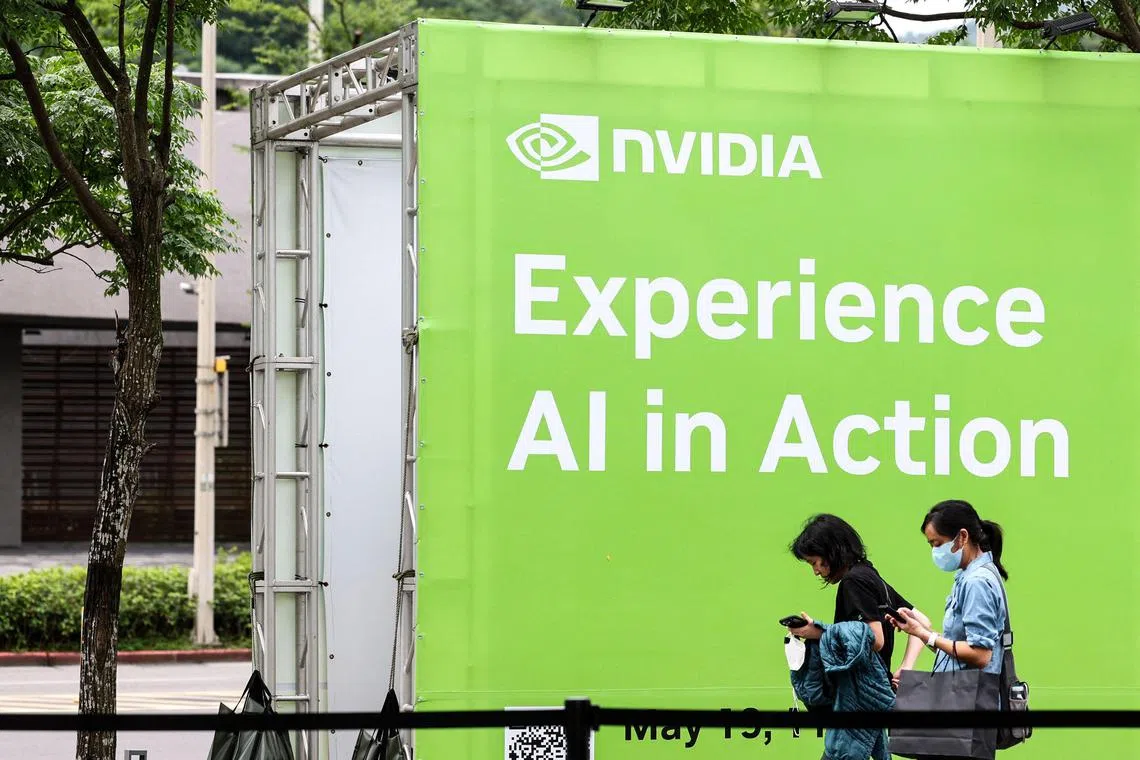Nvidia says no ‘backdoors’ in chips as China questions security
Sign up now: Get insights on Asia's fast-moving developments

A key issue has been Beijing's access to H20 chips, a less powerful version of Nvidia’s AI processing units developed for export to China.
PHOTO: AFP
Beijing – Nvidia chips do not contain “backdoors” allowing remote access, the US tech giant has said, after Beijing summoned company representatives to discuss “serious security issues”.
The California-based company is a world-leading producer of artificial intelligence (AI) semiconductors and became the first company to hit US$4 trillion (S$5.2 billion) in market value.
But it has become entangled in trade tensions between China and the US, and Washington effectively restricts which chips Nvidia can export to China on national security grounds.
“Cyber security is critically important to us. Nvidia does not have ‘backdoors’ in our chips that would give anyone a remote way to access or control them,” Nvidia said in a statement on July 31.
A key issue has been Chinese access to H20 chips – a less powerful version of Nvidia’s AI processing units that the company developed specifically for export to China.
Nvidia said it would resume H20 sales to China after Washington pledged to remove licensing curbs that had halted exports.
But the tech giant still faces obstacles – US lawmakers have proposed plans to require Nvidia and other manufacturers of advanced AI chips to include built-in location tracking capabilities.
Beijing’s top internet regulator said on July 31 it had summoned Nvidia representatives to discuss recently discovered “serious security issues” involving the H20.
The Cyberspace Administration of China said it had asked Nvidia to “explain the security risks of vulnerabilities and backdoors in its H20 chips sold to China and submit relevant supporting materials”.
Beijing is aiming to reduce reliance on foreign tech by promoting Huawei’s domestically developed 910C chip as an alternative to the H20, said Mr Jost Wubbeke of Sinolytics, a European consultancy focused on China.
“From that perspective, the US decision to allow renewed exports of the H20 to China could be seen as counterproductive, as it might tempt Chinese hyperscalers to revert to the H20, potentially undermining momentum behind the 910C and other domestic alternatives,” he said.
Other hurdles to Nvidia’s operations in China are the sputtering economy, beset by a years-long property sector crisis, and heightened trade headwinds under US President Donald Trump.
Nvidia chief executive Jensen Huang said during a visit to Beijing that the company remained committed to serving local customers, adding that he had been assured during talks with top Chinese officials that the country was “open and stable”. AFP


